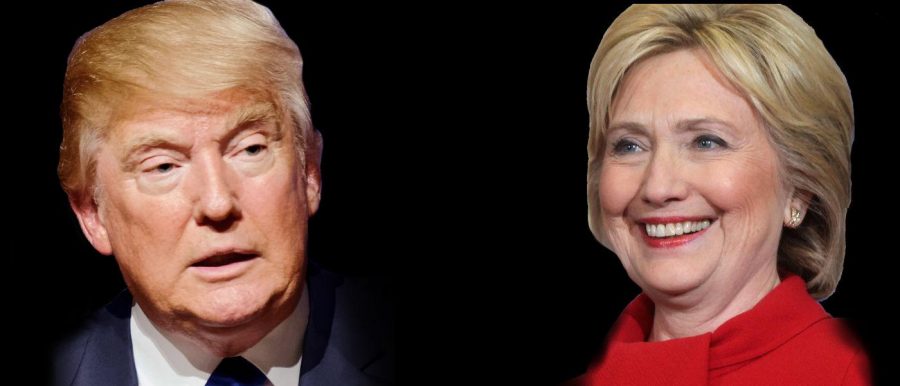Throughout this election cycle, the American populace has seen six Democrats and 17 Republicans vie for their party’s nomination, and one by one these presidential hopefuls have suspended their campaign, leaving just three survivors to compete.
Donald Trump – How did we get here?
Donald Trump, the presumptive Republican nominee, has defeated his competition through unprecedented tactics of Twitter battles, fantastical proclamations and plans to build walls, bar Muslims and bomb oil fields.
Just over a year ago, Trump came before a crowd in his gold-plated Trump Tower in New York City to announce his candidacy, completely straying from his script and outlining his plan to “make America great again.”
Most political pundits dismissed his candidacy as an attempt to garner more attention for his reality show, “The Apprentice,” or to increase his personal wealth.
The Democratic National Committee spokeswoman Holly Shulman released a statement that said, “Today, Donald Trump became the second major Republican candidate to announce for president in two days. He adds some much-needed seriousness that has previously been lacking from the GOP field, and we look forward to hearing more about his ideas for the nation.”
So, how did Trump go from a outlandish joke to the leading Republican candidate? The answer is highly contested, as differing political scientists offer their best guess at how a media mogul defeated a Bush, a young and exciting rising star from the swing state of Florida and governors galore.
One truth most pundits agree upon is the success he has with his base of white, blue-collar, uneducated males. These men, angry with their lack of personal economic growth, find comfort in Trump’s plan to eradicate the “enemies” he has created to explain this lack of financial success: the Chinese, immigrants and Muslims.
Another aspect of this election cycle that has greatly contributed to Trump’s success is the amount of free media coverage he receives. Although Trump has only spent about $10 million in advertising (comparatively, Jeb Bush spent $82 million and Marco Rubio spent $55 million), he has received about $2 billion of free media coverage, according to the New York Times.
Thus, Trump’s indignant message and ample media coverage have catapulted this mogul to July’s Republican National Convention in Cleveland. While he has already defeated 16 Republicans for the nomination, he still has one more battle fight in November.
The race is over between Clinton and Sanders but Bernie just won’t stop
As of June 6, the Associated Press, along with several other news outlets, announced that Hillary Clinton had won the necessary delegates to clinch the nomination.
However, Senator Sanders did not concede; instead, he competed in the June 7 primaries, including those in California, New Jersey, New Mexico and the Dakotas. That night, Clinton won 391 delegates and Sanders won 303.
The Sanders team hoped that the Vermont Senator could win California due to its young and far left population, and Sanders himself practically moved to the Golden State, holding 27 forums and rallies in May. So when Clinton won by 10 percent, many expected Sanders to finally drop out and endorse Clinton, but Sanders proved his campaign would not stop until the Democratic National Convention whether he could win or not.
While Sanders continues to fight for the nomination, Clinton has turned her eye towards the general election and trying to defeat her opponent, a social-media master. Her campaign (and tweets) has turned harsher to show that Clinton will not tolerate Trump’s offensive words.
After President Barack Obama endorsed Clinton for president, Trump tweeted, “Obama just endorsed Crooked Hillary. He wants four more years of Obama—but nobody else does!”
Clinton fired back, “Delete your account.” While jokes were made regarding Clinton’s missing emails, this tweet garnered significant media coverage and pundits noted that Clinton’s team will not let Trump bully them.
As she moves forward, with endorsements from Vice President Joe Biden and Senator Elizabeth Warren, Clinton worries less about winning over Democrats and more about moderate Republicans.

